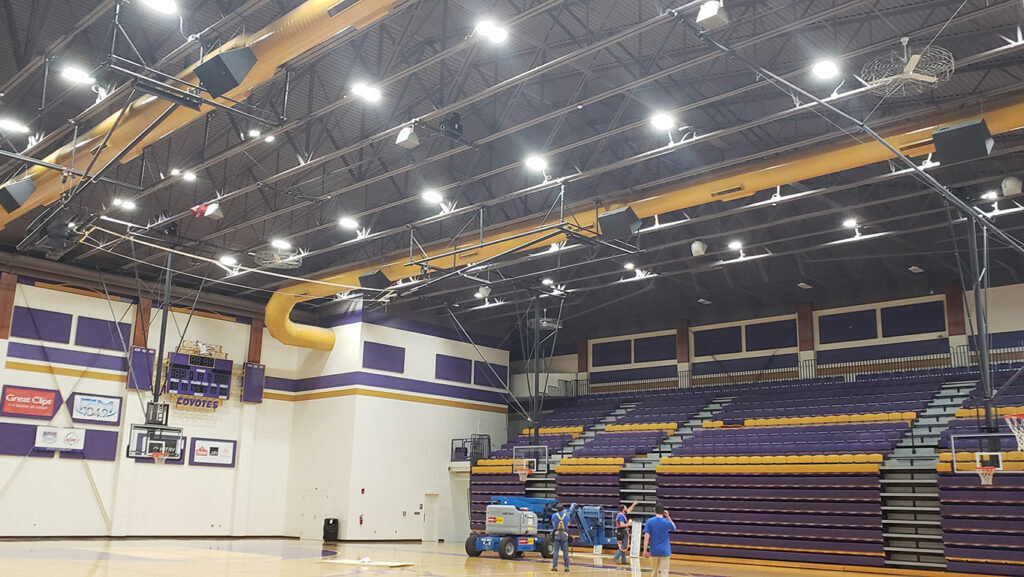Kansas Wesleyan is taking steps to reduce its carbon footprint, even in the midst of a global pandemic.
KWU has begun a project alongside Energy Solutions Professionals (ESP), a Kansas City firm, to make campus-wide improvements that will both help the environment and save utility and operating costs in the long-term. The project will reduce the campus’s carbon footprint by 3.3 million pounds of CO2e annually, which is equivalent to the electric use of 250 homes each year.
“Kansas Wesleyan is deeply committed to our role in environmental responsibility and creating a positive effect in the world,” said Dr. Matt Thompson, President and CEO of KWU. “To be able to reduce our carbon footprint shows that we are good stewards of the Earth, which is a critical aspect of being responsible citizens. That is a lesson we strive to teach our students each day. We have worked hard at this throughout our history, but particularly over the past several years with the advent of our Environmental, Sustainability and Resilience Studies program and the learning experiences that surround that. We’re proud that we have been able to accomplish this while being fiscally responsible and saving KWU money. Further, we are pleased to be able to partner with ESP and their years of experience on projects like ours.”
The project got underway June 8 with the start of installation of new LED lighting, which is taking place in nine buildings that currently use fluorescent or incandescent lamps. KWU began this shift in 2019, when an on-campus group led a similar replacement in the Pollak Chemistry Lab. That change resulted in a 9,000-pound annual carbon footprint reduction, initiated entirely by students, faculty and staff.
“We are very happy that KWU continues to grow its eco-friendly efforts through decisions like this one, and we’re proud that students, faculty and staff were on the forefront of some of the initial phases of the lighting change,” said Kelsey Ripperger, incoming President of the KWU Student Environmental Club.
Other portions of the project planned in the coming months include new water-saving fixtures in numerous locations and HVAC improvements — or replacements — that will maximize operating efficiency, including through the elimination of R22 HCFC refrigerant.
When complete, the project will save KWU more than $137,000 annually on utility and operating costs.
KWU hopes to have much of the project completed prior to the start of the 2020-21 school year, which will begin Wednesday, Aug. 5, when new students move in to the campus residence halls.


